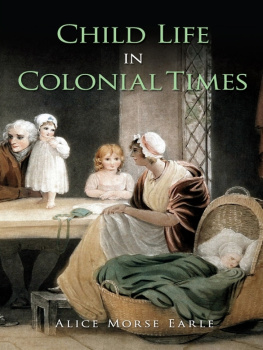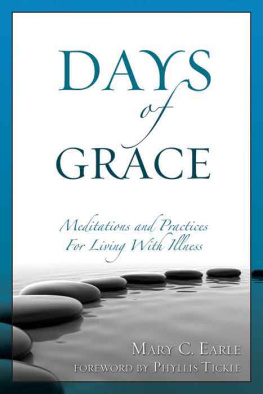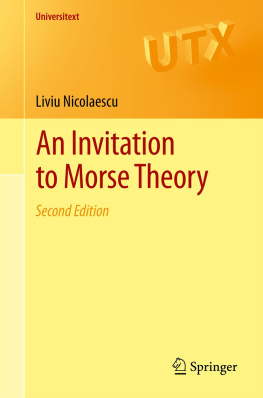Alice Morse Earle - Curious Punishments of Bygone Days
Here you can read online Alice Morse Earle - Curious Punishments of Bygone Days full text of the book (entire story) in english for free. Download pdf and epub, get meaning, cover and reviews about this ebook. year: 1972, publisher: C. E. Tuttle Company, genre: Non-fiction. Description of the work, (preface) as well as reviews are available. Best literature library LitArk.com created for fans of good reading and offers a wide selection of genres:
Romance novel
Science fiction
Adventure
Detective
Science
History
Home and family
Prose
Art
Politics
Computer
Non-fiction
Religion
Business
Children
Humor
Choose a favorite category and find really read worthwhile books. Enjoy immersion in the world of imagination, feel the emotions of the characters or learn something new for yourself, make an fascinating discovery.

- Book:Curious Punishments of Bygone Days
- Author:
- Publisher:C. E. Tuttle Company
- Genre:
- Year:1972
- Rating:4 / 5
- Favourites:Add to favourites
- Your mark:
- 80
- 1
- 2
- 3
- 4
- 5
Curious Punishments of Bygone Days: summary, description and annotation
We offer to read an annotation, description, summary or preface (depends on what the author of the book "Curious Punishments of Bygone Days" wrote himself). If you haven't found the necessary information about the book — write in the comments, we will try to find it.
Curious Punishments of Bygone Days — read online for free the complete book (whole text) full work
Below is the text of the book, divided by pages. System saving the place of the last page read, allows you to conveniently read the book "Curious Punishments of Bygone Days" online for free, without having to search again every time where you left off. Put a bookmark, and you can go to the page where you finished reading at any time.
Font size:
Interval:
Bookmark:

Bygone Days
of
Bygone Days,
BY FRANK HAZENPLUG
Port Townsend, Washington
Reprinted by
Loompanics Unlimited
Library of Congress Catalog
Card Number 86-082642
| I | THE BILBOES |
| II | THE DUCKING STOOL |
| III | THE STOCKS |
| IV | THE PILLORY |
| V | PUNISHMENTS OF AUTHORS AND BOOKS |
| VI | THE WHIPPING-POST |
| VII | THE SCARLET LETTER |
| VIII | BRANKS AND GAGS |
| IX | PUBLIC PENANCE |
| X | MILITARY PUNISHMENTS |
| XI | BRANDING AND MAIMING |
In ransacking old court records, newspapers, diaries and letters for the historic foundation of the books which I have written on colonial history, I have found and noted much of interest that has not been used or referred to in any of those books. An accumulation of notes on old-time laws, punishments and penalties has evoked this volume. The subject is not a pleasant one, though it often has a humorous element; but a punishment that is obsolete gains an interest and dignity from antiquity and its history becomes endurable because it has a past only and no future. That men were pilloried and women ducked by our law-abiding forbears rouses a thrill of hot indignation which dies down into a dull ember of curiosity when we reflect that they will never be pilloried or ducked again.
For others good, and melt for others woe.
Bygone Days
There is no doubt that our far-away grandfathers, whether of English, French, Dutch, Scotch or Irish blood, were much more afraid of ridicule than they were even of sinning, and far more than we are of extreme derision or mockery to-day. This fear and sensitiveness they showed in many ways. They were vastly touchy and resentful about being called opprobrious or bantering names; often running petulantly to the court about it and seeking redress by prosecution of the offender. And they were forever bringing suits in petty slander and libel cases. Colonial court-rooms bubbled over with scandal and gossip and spite. A creature as obsolete as his name, a makebayt, was ever-present in the community, ever whispering slander, ever exciting contention, and often also haled to court for punishment; while his opposite, a make-peace, was everywhere sadly needed. Far-seeing magistrates declared against the make-bait, as even guilty of stirring up barratry, or as Judge Sewall, the old Boston Puritan termed it, at least gravaminous.
Font size:
Interval:
Bookmark:
Similar books «Curious Punishments of Bygone Days»
Look at similar books to Curious Punishments of Bygone Days. We have selected literature similar in name and meaning in the hope of providing readers with more options to find new, interesting, not yet read works.
Discussion, reviews of the book Curious Punishments of Bygone Days and just readers' own opinions. Leave your comments, write what you think about the work, its meaning or the main characters. Specify what exactly you liked and what you didn't like, and why you think so.








